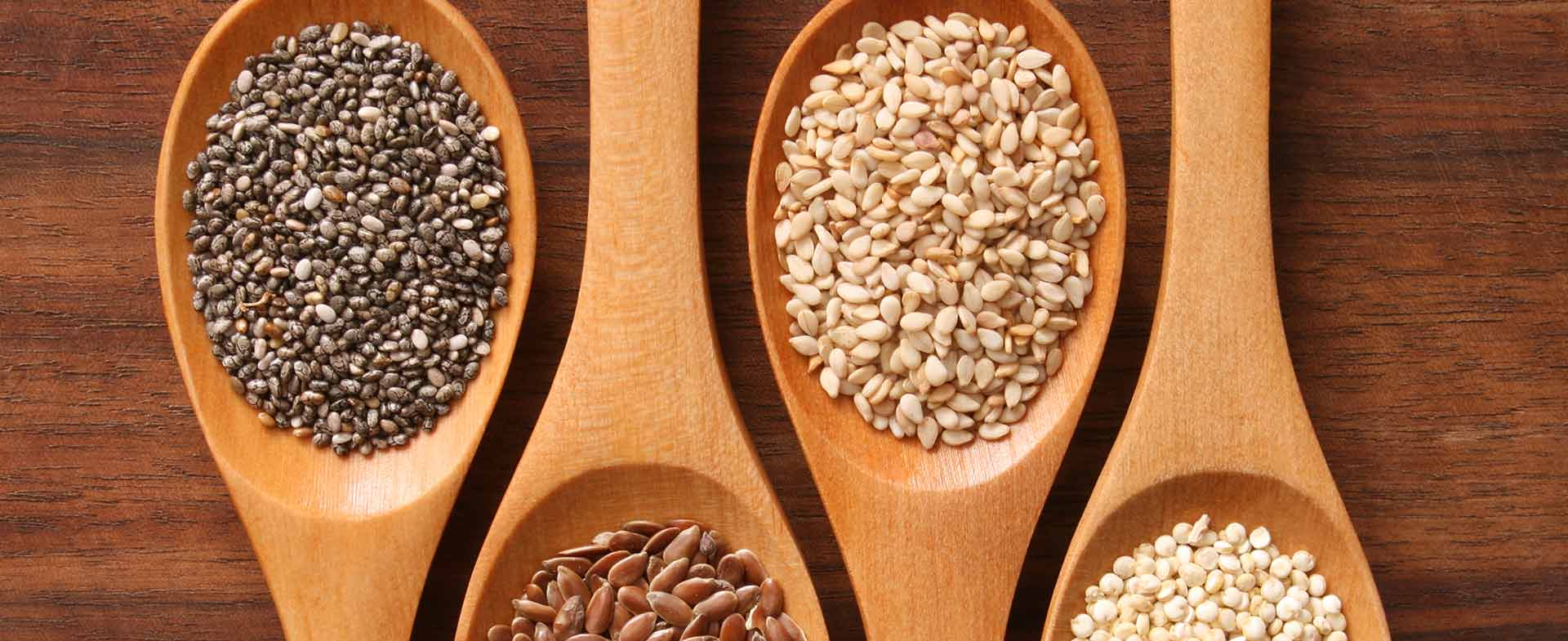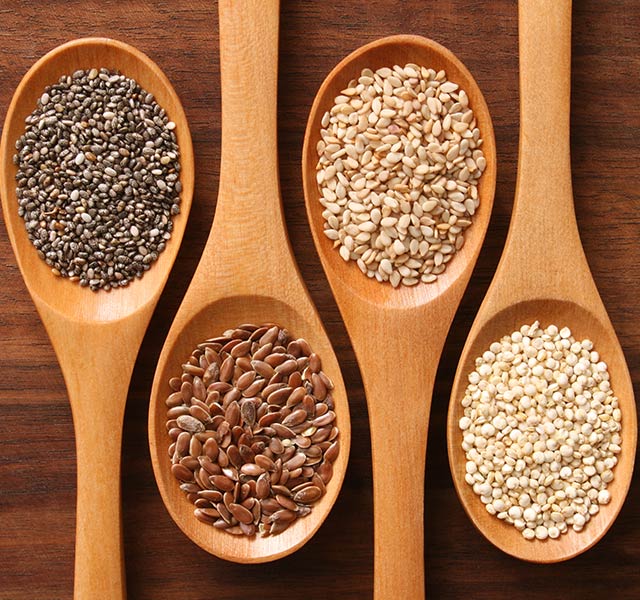Seeds are among the most healthful foods in the plant world. They’re loaded with fiber, healthy monounsaturated fats, and a slew of important vitamins and minerals. Yet, many people overlook seeds when they're planning meals and snacks.
"I rarely hear people say, 'I eat a lot of seeds,' unless they're eating a more plant-based diet and they're looking for protein sources," says Ashlee Carnahan, MS, RD, a registered dietitian nutritionist at Henry Ford Health. "Seeds are a great source of healthy fats and fiber, with a nutrient profile similar to nuts. They're just not as popular."
Seed Varieties
You might spot seeds mixed into a salad or rice dish, but they rarely take center stage in recipes and meal plans. With so many varieties appearing on grocery store shelves, it may be time to take a closer look at these nutritional powerhouses.
Here's how different seeds break down:
- Flaxseeds: Flaxseeds, also called linseeds, may be the most popular of the lot — and for good reason. They're chock full of fiber, omega-3 fats and plant chemicals called lignans, which have anti-inflammatory properties. Studies suggest eating flaxseeds may help reduce cholesterol levels, keep blood pressure in check and potentially reduce the risk of heart disease. "Mix them into oatmeal and smoothies, or stir them into cereal," Carnahan says.
- Chia seeds: "Chia and flax are like best friends," Carnahan says. "They have similar nutrients, including omega-3 fatty acids." Like flaxseeds, chia seeds also boast plenty of disease-fighting plant chemicals. A bonus: chia seeds may help reduce blood sugar levels and help manage blood pressure levels.
- Sunflower seeds: Sunflower seeds are a great source of vitamins B, E and selenium. As far as seeds go, they're among the few that you can eat by the handful. "Just watch the salt," Carnahan says. "Choose lightly salted or unsalted sunflower seeds, especially if you have high blood pressure."
- Hemp seeds: Of all the seeds, hemp seeds boast the most protein (30%), including all the essential amino acids the body needs to function. In addition, hemp seeds are rich in heart-healthy omega-3 and omega-6 fatty acids. How do they taste? Crunchy. Since they pack a greater crunch than many other seed varieties, hemp seeds are an ideal way to add texture to yogurt, salad and soups.
- Sesame seeds: Often seen on bagels and hamburger buns, sesame seeds are also common in Asian-inspired dishes and as part of a Mediterranean paste called tahini. They're a good source of fiber and important minerals like selenium. Like flaxseeds, they're also rich in lignans. "Unfortunately, sesame seeds are also the most common seed allergy," Carnahan says.
- Pumpkin seeds: Pumpkin seeds are wildly popular, especially among children. They're rich in phosphorus and healthy fats and may help lower cholesterol levels and improve heart health. "Add them to salads or oatmeal, or roast them with a dash of cinnamon," Carnahan says.
Eating More Seeds
Just a spoonful of seeds could yield a lot of health benefits, including lowering your risk of various diseases such as heart disease and cancer. Just watch your portion size. "Even though they're really good for you, they can add up calorie-wise," Carnahan says.
If you aren’t used to eating a lot of fiber, go easy on the seeds. You may not be able to tolerate too many seeds straight out of the gate. Start slow and amp up your water intake to keep things moving.
To find a registered dietitian at Henry Ford, visit henryford.com or call 1-800-436-7936.
Ashlee Carnahan is a registered dietitian nutritionist at Henry Ford Health who sees patients at Henry Ford Hospital.



